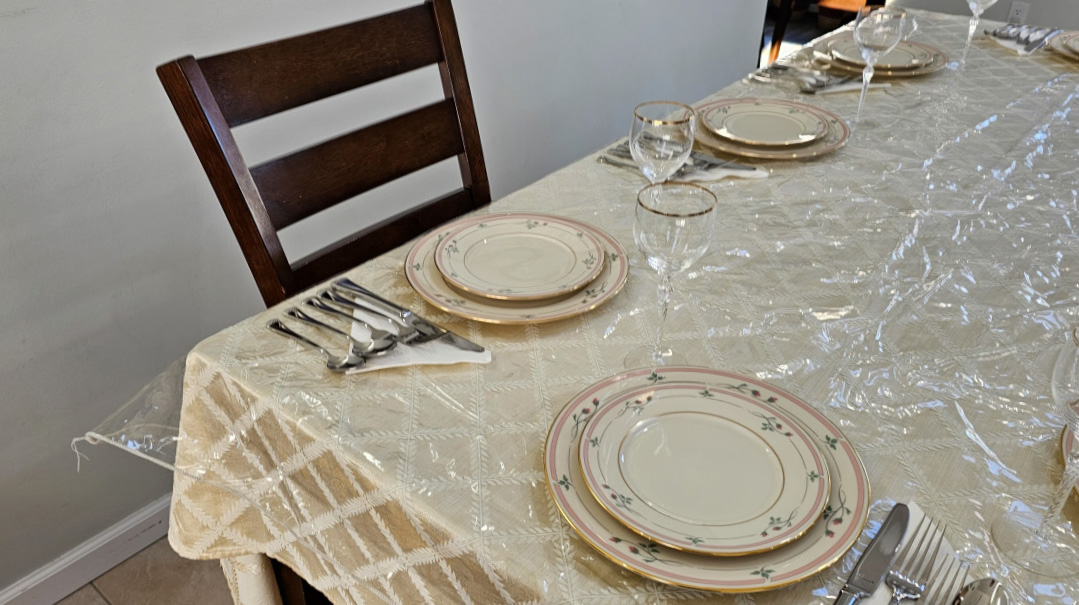Dear Neighbor

Isaw the way you were staring at me recently, after you realized that my son, who is 30 years old and single, doesn’t live at home. You’ve noticed that he sometimes comes for Shabbos, but more often than not, he goes to other people.
You expressed concern to another neighbor: “Did his parents kick him out? I understand he has some issues, but don’t they care about him enough to have him come more often for Shabbos?”
Do you have any idea what a sucker punch you gave my heart? All you see is the tip of the iceberg, the iceberg that’s my family’s relationship with my son. Of course I love my son. I fervently wish it were possible to spend more time with him.
As much as I love Yoni, I truly despise the mental illness that has prevented us from having a normal mother-son relationship. I presume you’re not aware he’s been diagnosed with bipolar disorder. The fact that you know me and my husband doesn’t give you any idea about what our son suffers from, or of the herculean efforts we’ve made on his behalf.
Some people with this condition benefit from medication and lead full, productive lives. Unfortunately, Yoni is one of the rare ones who don’t respond well to medication. That suits him fine, because he doesn’t like being on meds. When he’s in a manic phase, he believes he’s endowed with incredible genius and talent, some kind of Superman. Why would he want to take medication and feel like an average Joe? And you can’t force an adult to take his meds.
Because of Yoni’s situation, he isn’t easy to live with. He’s fascinated by inappropriate conversation topics, reveling in shock value, violence, and stomach-turning factoids. He vents his frustrations by belittling me or being nasty to me. I can take that in smallish doses, but over time, it poisons our family atmosphere and creates a bad influence on my other kids.
When he goes to strangers for Shabbos, or hangs out in his residence, he behaves much better. He is very lucky so far, because someone we know gave him a job he enjoys during the hours he’s most productive. We’re thrilled that he’s able to earn some money of his own and enjoy a bit of the independence a young man his age normally craves.
I’m not exaggerating about the bad influence on the other kids. One of my other sons struggled with Yiddishkeit for a number of years, and growing up with a bipolar brother didn’t make things any easier. Yoni has been known to tell fibs about our family, and since he’s sometimes capable of acting quite normally, people often believe him when he tells them he needs handouts because his cruel parents haven’t fed him in three days.
So, dear neighbor, welcome to my life. It’s easy to judge other parents by the standards of your own family. But if you’d walk in my shoes for even a few days, you’d understand why we seem to push away our son so heartlessly.
Yoni is happier and functions better when he’s not at home. Sometimes, being a loving parent means allowing your child to live in the situation best for him, whether or not it looks best to the community.
Yoni knows we love him, that we’re always there to ensure he’ll be protected and supported. But until his psychiatrists can come up with a more effective solution for managing his illness, we’ll love each other from a bit of a distance.
Hashem gives tests to all of us, and I hope you never have to experience mine. In the meantime, I hope you’ll judge me l’chaf zechus. My life hasn’t been easy, but it would be a little easier if I felt that others were understanding and supportive instead of assuming I’m some heartless mom who abandoned her child.
I suggest that every time you see those “heartless” mothers, stop and ask yourself if they’re heartless or heartbroken.
Yours,
Mrs. Down the Block
(Originally featured in Family First, Issue 601)
Oops! We could not locate your form.







